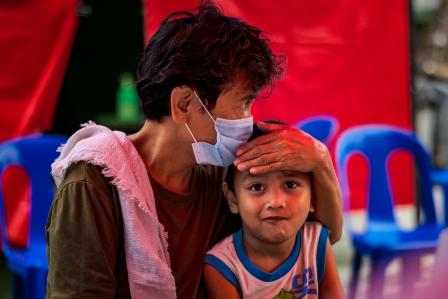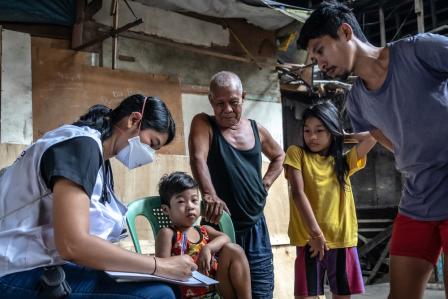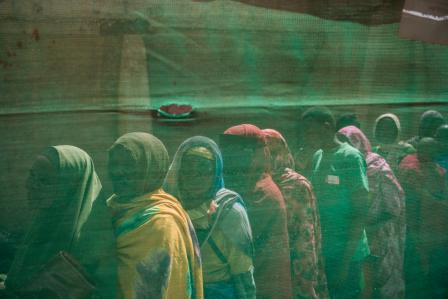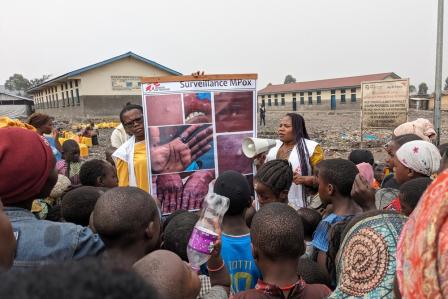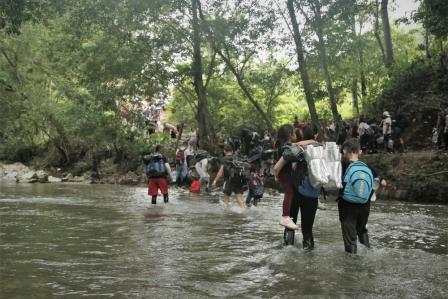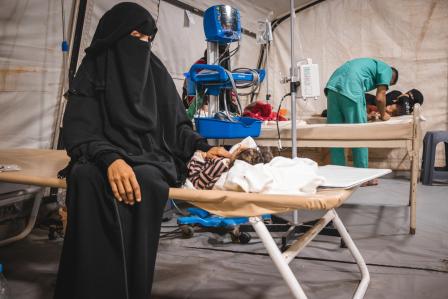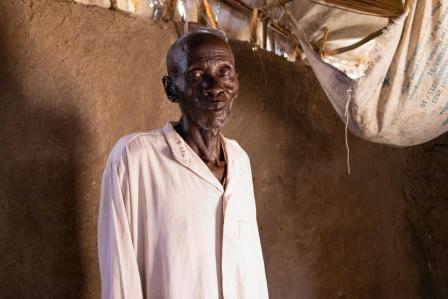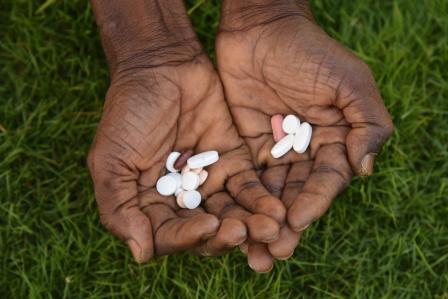TB-PRACTECAL: Ujikaji klinikal Doctors Without Borders menemukan rawatan singkat, berkesan dan selamat untuk tuberkulosis rintang ubat
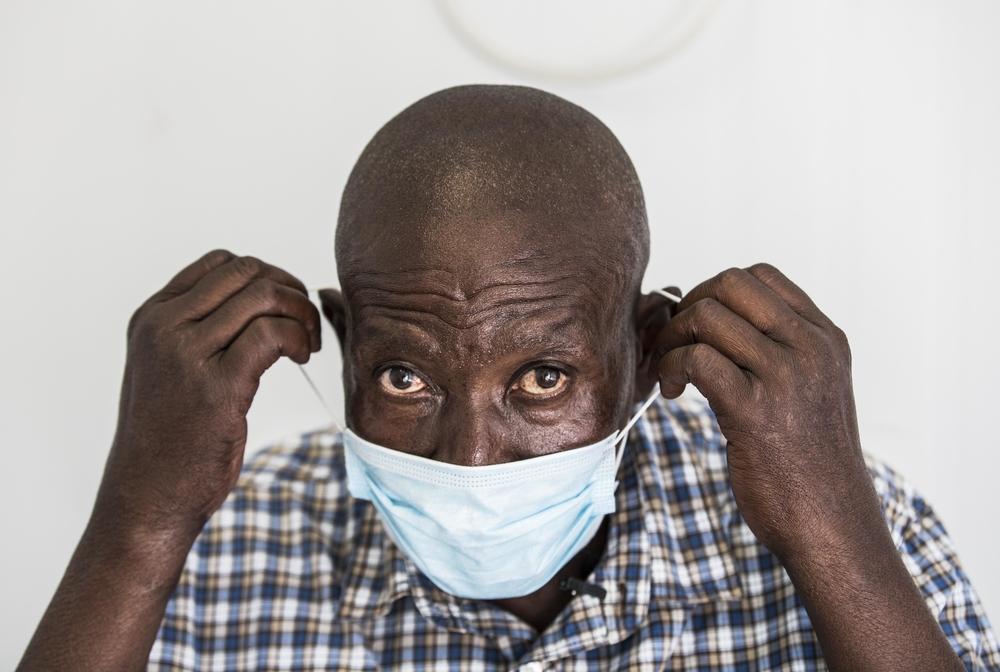
Seorang pesakit di Doris Goodwin Hospital dan sedang menjalani Ujikaji Klinikal TB Practecal. Afrika Selatan, 2018. © Oliver Petrie/MSF
TB-PRACTECAL, ujikaji klinikal diterajui Doctors Without Borders / Médecins Sans Frontières (MSF) menemui rejimen rawatan baharu selama enam bulan sepenuhnya secara oral, adalah selamat dan lebih berkesan dalam merawat tuberkulosis rintang-rifampicin (RR-TB) berbanding standard rawatan diterima semasa.
Keputusan ini petanda permulaan baharu untuk mereka yang mengalami TB rintang ubat (DR-TB) yang kini terpaksa melalui rejimen rawatan panjang sehingga 20 bulan yang mungkin membabitkan penerimaan suntikan menyakitkan dan pengambilan sehingga 20 pil sehari sehingga mengundang kesan sampingan teruk. Rejimen memenatkan ini menyembuhkan hanya satu dalam dua pesakit dan boleh menyebabkan kesan teruk kepada kesihatan fizikal dan mental seseorang, begitu juga kewangan dan kehidupan sosial mereka.
Doctors Without Borders hari ini mengumumkan keputusan ini di Union World Conference on Lung Health ke-52, dan berhasrat menerbitkannya secara penuh dalam jurnal semakan-rakan sebaya lewat tahun ini. Doctors Without Borders juga berkongsi data bersama Pertubuhan Kesihatan Dunia (WHO) lebih awal daripada semakan garis panduan rawatan WHO untuk DR-TB dengan harapan ia mempengaruhi garis panduan DR-TB kebangsaan dan lebih penting amalan klinikal.
TB-PRACTECAL is the first-ever multi-country, randomised, controlled clinical trial to report on the efficacy and safety of a six-month, all-oral regimen for RR-TB. It tested a six-month regimen of bedaquiline, pretomanid, linezolid and moxifloxacin (BPaLM), against the locally accepted standard of care. The trial enrolled 552 patients overall, of which 301 were included in the analysis at this stage. The trial took place in seven sites across Belarus, South Africa and Uzbekistan.
The phase II/III clinical trial found that the new shorter treatment regimen was very effective against RR-TB. 89 per cent of patients in the BPaLM group were cured, compared to 52 per cent in the standard of care group. Tragically four patients died from TB or treatment side effects in the control group, while there were no deaths among patients on the new regimen. Additionally, trial results showed that the new drugs lead to a significantly lower rate of major side effects, with 80 per cent of patients avoiding any major side effects compared to 40 per cent in the control group.
When we embarked on this journey nine years ago, patients with DR-TB around the world were facing lengthy, ineffective and gruelling treatment that disrupted their lives. Patients were telling us how hard it was to adhere to treatment, but little progress was being made to find kinder treatments because diseases most prevalent in low- and middle-income countries don’t attract investment. So we were compelled to pursue new treatment options ourselves. These results will give patients, their families and healthcare workers worldwide, hope for the future of DR-TB treatment.Bern-Thomas Nyang’wa - Medical Director
Nosipho Ngubane, Principal Investigator at King DinuZulu Hospital, South Africa, one of the seven TB-PRACTECAL trial sites says, “it has been an honour to serve our communities through this research. “ For participants, it has been easier to comply with the treatment and complete this shorter regimen which uses fewer tablets.”
Doctors Without Borders hopes these results will serve as a major contribution to the growing body of evidence for global treatment recommendations to be updated to include a short, effective, and safe treatment regimen. Ultimately, Doctors Without Borders believes these results prove that a change in clinical practice is now due.
Doctors Without Borders and its TB PRACTECAL partners continue to provide care and check-ups for patients who are finishing their treatment in the trial, with the last patient follow-up scheduled for summer 2022.
Doctors Without Borders plans to work closely with National TB Programmes, Ministries of Health and other key stakeholders to ensure that this treatment is available as soon as possible to patients.
Doctors Without Borders is committed to providing TB care and advocating for effective and affordable treatments. Last year, our teams helped 13,800 people start on TB treatment, including 2,100 with drug-resistant TB. As one of the largest non-governmental providers of TB treatment worldwide, we are excited about what these results will mean for those with MDR-TB. We’d like to extend our huge thanks to the staff and patients who have been so committed to this trial. Thanks to every one of them, we have new evidence for drastically shorter, effective, safer, and kinder treatments that the TB community have long waited for.Dr Christos Christou, Int'l President
Doctors Without Borders is one of the largest non-governmental providers of TB treatment worldwide. In 2020, Doctors Without Borders started 13,800 people on TB treatment, including 2,100 with drug-resistant TB.
